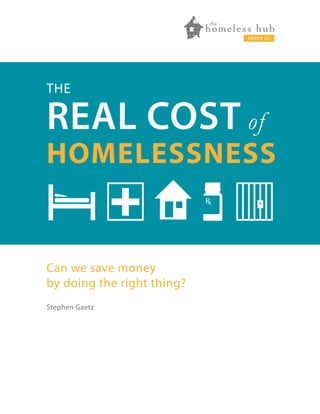Have you ever wondered what you’re sacrificing when you make a choice? Every decision we make in life comes with a price tag – an opportunity cost. Whether it’s choosing one job over another, spending our free time on one activity instead of another, or investing our money in a particular venture – we are constantly faced with trade-offs. These trade-offs, or opportunity costs, play a significant role in our personal, professional, and financial lives. In this blog post, we’ll dive into the concept of opportunity cost, explore its various applications, and learn how understanding it can help us make better decisions.
Defining Opportunity Cost
Opportunity cost refers to the value of the next best alternative that is forgone when making a choice. In simpler terms, it’s what you give up when you choose one option over another. To grasp this concept better, let’s consider some real-life examples:
Imagine you have been offered two jobs: Job A offers a high salary but demands long working hours, while Job B offers a lower salary but provides a better work-life balance. If you choose Job A, the opportunity cost is the work-life balance you could have enjoyed with Job B. On the other hand, if you choose Job B, the opportunity cost is the higher salary you could have had with Job A.
It’s not only career choices that involve opportunity costs. Even when deciding how to spend your leisure time, there are opportunity costs to consider. Let’s say you have a free weekend and can either go hiking or spend the day watching movies. If you choose hiking, the opportunity cost is the enjoyment you could have derived from watching movies. If you choose movies, the opportunity cost is the experience and exercise you could have gained from hiking.
Opportunity cost also applies to financial decisions. When you choose to invest your money in one venture, there is always an opportunity cost in terms of potential returns you could have earned from another investment. Similarly, when you spend your money on a particular purchase, there is an opportunity cost in terms of what else you could have spent that money on.
Evaluating Opportunity Cost in Personal Life
In our personal lives, we often face multiple choices and have to prioritize how we allocate our time, energy, and resources. Understanding opportunity cost can help us make more informed decisions and optimize our personal experiences. Here are some scenarios where opportunity cost comes into play:
Making career decisions
When it comes to our careers, opportunity cost is often at its peak. Each job opportunity comes with its own set of advantages and disadvantages. We need to consider factors such as salary, growth potential, job satisfaction, and work-life balance. By assessing the opportunity costs associated with each option, we can make career choices that align with our priorities and goals.
Allocating free time
Our free time is a valuable resource, and how we choose to spend it also involves opportunity cost. We might face decisions like whether to pursue a new hobby, spend time with loved ones, engage in personal development, or simply relax. By analyzing the opportunity cost of each option, we can make mindful choices that bring us the most fulfillment.
Investments and personal finances
Opportunity cost is a critical consideration in financial matters as well. When we invest our money, we must weigh the potential returns against alternative investment options. Additionally, our spending decisions involve opportunity cost – every purchase means forgoing the opportunity to spend that money on something else. By understanding the opportunity costs, we can make wiser financial choices that align with our long-term goals.
Opportunity Cost in Professional Contexts
Professionally, opportunity cost affects decision-making processes in various aspects. Whether you run your own business or work for someone else, understanding opportunity cost can improve your efficiency and effectiveness. Here are a few relevant scenarios:
Image courtesy of www.linkedin.com via Google Images
Business and entrepreneurship
Entrepreneurs and business owners face constant decision-making dilemmas, where opportunity costs are particularly important. Choosing between different business ventures or deciding to expand an existing business require careful consideration of the potential gains and losses associated with each option. By assessing the opportunity costs, entrepreneurs can make strategic decisions that maximize their chances of success.
Time management at work
Opportunity cost plays a vital role in time management. We are often bombarded with multiple tasks and objectives, each with its own level of importance and impact. By recognizing the opportunity costs associated with different tasks, we can prioritize and allocate our time more effectively. This allows us to focus on high-value activities and optimize our productivity.
Human resource decisions
When it comes to managing teams or hiring new employees, opportunity cost is an essential factor to consider. Every decision related to human resources involves costs in terms of time, effort, and potential outcomes. By evaluating the opportunity costs, organizations can make informed decisions about recruitment, training, and retention, ultimately leading to improved performance and growth.
Societal Impact of Opportunity Cost
Opportunity cost goes beyond individual decision-making and extends to societal and public policy contexts. Understanding the opportunity costs associated with different choices can help us make informed decisions that benefit society as a whole. Here are a few areas where opportunity cost has a broader impact:
Public policy decisions
Policy-makers are often faced with limited resources and must make decisions that prioritize certain areas over others. By considering the opportunity costs associated with different policies or allocations of resources, governments can make choices that maximize overall social welfare and address the most critical issues.
Resource distribution
Communities need to allocate resources wisely. Whether it’s deciding where to invest in infrastructure projects, education, healthcare, or public goods, opportunity cost remains a crucial consideration. By evaluating the opportunity costs involved, communities can make decisions that optimize the utilization of their resources and promote a better quality of life for their members.
Environmental considerations
Ensuring environmental sustainability requires weighing the opportunity costs associated with various practices and policies. For example, choosing to preserve a natural habitat for wildlife may involve sacrificing potential economic gains from development. By understanding the opportunity costs, we can make choices that balance the preservation of the environment with our socio-economic needs.
Maximizing Decision-Making Efficiency
Learning to recognize and evaluate opportunity costs can significantly enhance our decision-making abilities. Here are some strategies to help you make better decisions:

Image courtesy of www.slideshare.net via Google Images
Identifying trade-offs
Paying attention to the trade-offs involved in each decision can help you identify the opportunity costs. By clearly understanding what you stand to gain and what you might lose, you become better equipped to make choices that align with your priorities.
Weighing pros and cons
When faced with multiple options, comparing and weighing the opportunity costs of each choice can help you make a more informed decision. By considering the potential benefits and drawbacks, you can evaluate which option offers the best overall value.
Strategies to optimize outcomes
Armed with an understanding of opportunity cost, you can employ strategies to optimize outcomes. By considering the potential opportunity costs of different choices and evaluating possible returns, you can make decisions that lead to better results in the long run.
In Conclusion
Opportunity cost is the hidden currency of choice – the price we pay for the decisions we make. By unraveling the mysterious world of opportunity cost, we can become more conscious decision-makers in every aspect of our lives. Whether it’s personal choices, professional decisions, or societal considerations, understanding opportunity cost equips us with the tools to make informed choices that align with our goals and values. So, next time you’re faced with a decision, remember to consider what you might be sacrificing and choose wisely.




